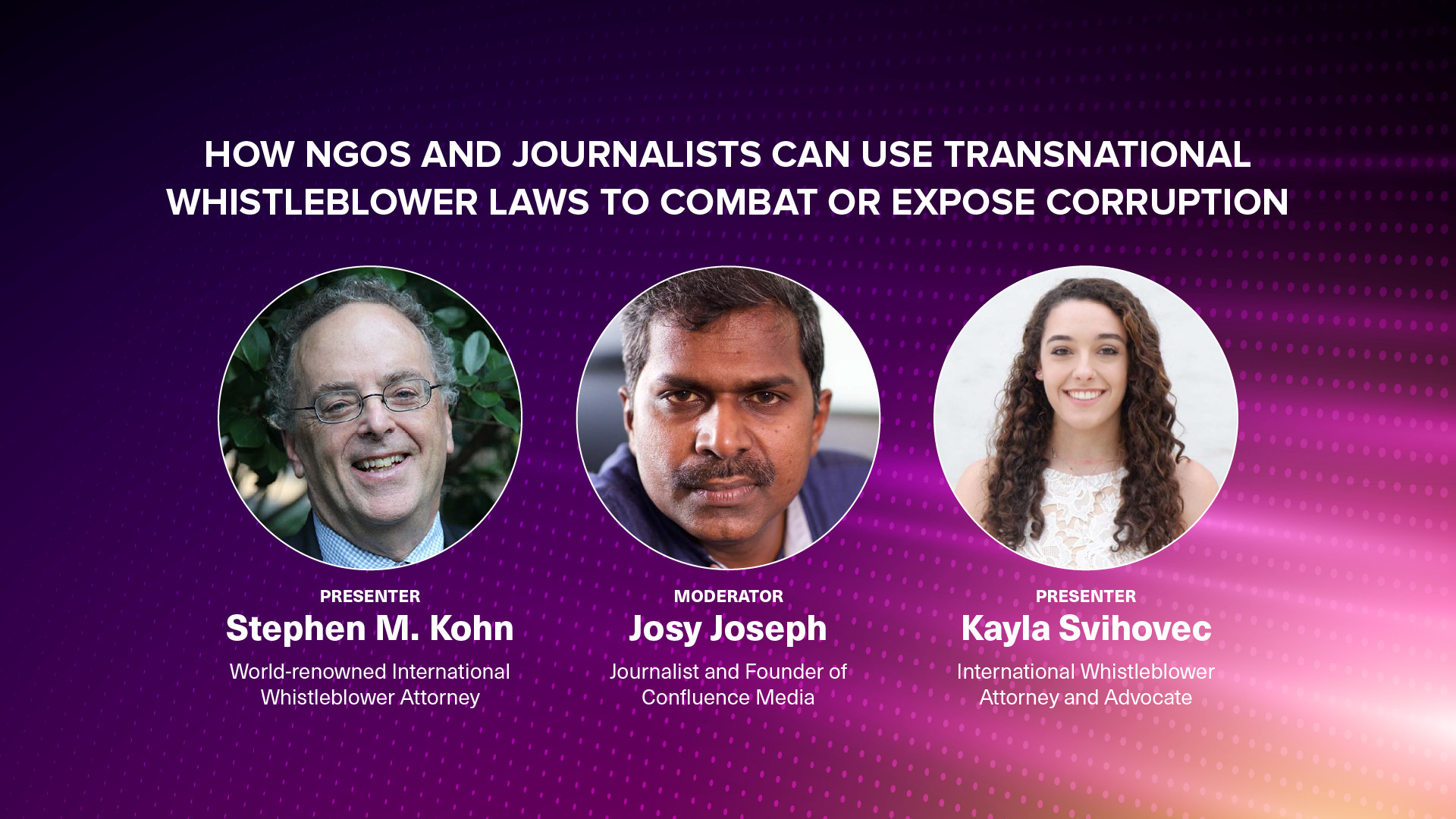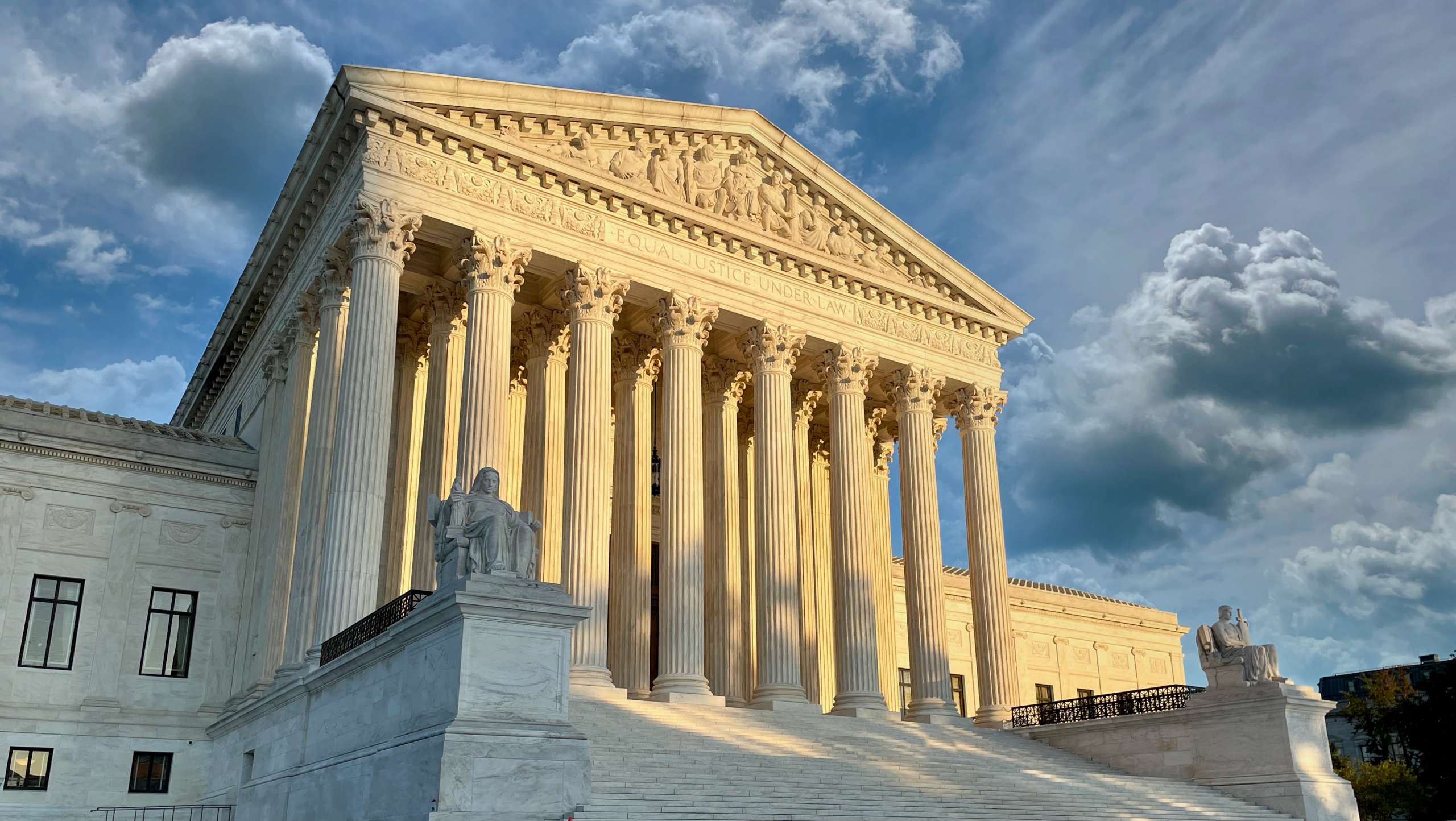Congress Should Use Budget Bill to Strengthen IRS Whistleblower Program

Since it was established in 2006, the Internal Revenue Service (IRS) Whistleblower Program has dramatically bolstered the United States’ efforts to crack-down on tax fraud schemes, identify tax cheats, deter would-be fraudsters and overall shrink the tax gap. In the less than two decades the program has been in operation, it has led to the recovery of over $7 billion while conserving the IRS’s time and resources.
However, in recent years, a number of issues have begun to plague the program, as delays have ballooned while payouts to whistleblowers have shrunk down. These issues threaten to undermine a critical and cost-effective tool in the United States’ anti-tax fraud arsenal by disincentivizing insiders from coming forward and utilizing the program.
Luckily, there has been bipartisan support in Congress for fixing the issues plaguing the IRS Whistleblower Program. The provisions found in the IRS Whistleblower Program Improvement Act, introduced by Senators Chuck Grassley (R-IA) and Ron Wyden (D-OR) during the last session of Congress were included in the draft discussion of the Taxpayer Assistance and Service Act unveiled earlier this year by Senators Wyden and Mike Crapo (R-ID).
These critically needed provisions have not been included in the budget reconciliation bill currently being considered by the Senate, however.
Including the reform provisions of the IRS Whistleblower Program Improvement Act in the budget bill will encourage and increase reporting to the IRS Whistleblower Program, leading to greater recoveries and enabling the IRS to be more efficient in their investigations with fewer resources.
Power of the IRS Whistleblower Program
Shortly after it was established in 2006, the Internal Revenue Service (IRS) Whistleblower Program demonstrated its potential to revolutionize the United States’ efforts to crack down on tax fraud and shrink the tax gap.
The monetary awards and protections offered by the program shifted the calculus for tax whistleblowers across the globe. Suddenly, the benefits of reporting tax fraud to U.S. authorities outweighed the benefits of keeping quiet and aiding in the fraud. Tax whistleblowing became a rational economic activity for bankers and other insiders.
Most notably, in 2009, UBS banker Bradley Birkenfeld came forward and blew the whistle on a major offshore banking scheme to hide U.S. taxpayer funds in Switzerland. While Birkenfeld came away with a record $104 million award, the benefits for the United States were even larger. According to University of California Davis law Professor Dennis Ventry:
“Thanks to [the] whistleblower . . . the U.S. government (take a deep breath) received: $780 million and the names of 250 high-dollar Americans . . . another 4,450 names and accounts of U.S. citizens . . . 120 criminal indictments of U.S. taxpayers and tax advisors . . . the closure of prominent Swiss banks . . . $5.5 billion collected from the IRS Offshore Voluntary Disclosure Program (OVDP), with untold tens of billions of dollars still payable . . .”
Overall, whistleblowers reporting under the IRS Whistleblower Program have directly allowed the United States to recover nearly $7 billion while the program’s deterrence effect has led to the payment of billions of dollars more in taxes from those who would be otherwise inclined to cheat the tax system but are wary of a whistleblower coming forward. A study of the similarly structured tax whistleblower award provisions within New York state’s False Claims Act found that that tax whistleblower program brought in an extra 7.7% in state tax revenue and that firms reduced their state tax avoidance in response both to the passage of the law and to press releases about tax whistleblower settlements.
“These whistleblower laws do work, and they’re reasonably inexpensive from a government perspective,” says Aruhn Venkat, one of the study’s authors and assistant professor of accounting at Texas University’s McCombs School of Business.
Crucially, the IRS Whistleblower Program helps the IRS be more efficient with its enforcement efforts and focuses its efforts on large tax cheats, since the program only covers matters where the amount of taxes in dispute exceeds $2 million. Whistleblowers come forward, identify bad actors, and provide valuable evidence about tax fraud. This allows the Commission to focus its efforts on recovering taxpayer funds from these high net-worth bad actors and not chase down the rabbit-hole of seeking enforcement avenues among the majority of honest taxpayers.
Recent Issues
The IRS Whistleblower Program’s recent annual reports to Congress detail a program facing issues. The annual money recovered by the program fell from $1.44 billion in Fiscal Year 2018 to just $245 million in Fiscal Year 2021 and the agency’s payouts to whistleblowers dropped from $312 million to $36 million over those same years.
In recent years, those totals have rebounded from those 2021 lows but still fall short of the numbers from 2018 and preceding years. In FY 2023, the IRS awarded $88.7 million to whistleblowers based on the $337 million the agency was able to collect thanks to whistleblower disclosures.
Even more troubling are the statistics on the average processing time for whistleblower award claims. The time to process mandatory award payments is up to an average of 11.29 years and there is a total backlog of 30,135 cases.
These delays are troubling, not just for the hardships they cause whistleblowers, but because of the way in which the disincentive would-be whistleblowers from coming forward. In 2006 (before the IRS whistleblower law was modernized), the Treasury Inspector General for Tax Administration raised concerns in a report that the average 7 1/2 year processing time for awards was undermining awards’ effectiveness as an incentive.
“If the claims are not timely processed, the rewards may lose some of their motivating value,” the TIGTA report stated. It further noted that cutting processing time “would make the Program more attractive to future informants wishing to report violations of tax laws.”
In recent years, the IRS Whistleblower Office has worked hard to address the issues plaguing the program, including increasing staffing at the office, disaggregating whistleblower claims to speed up award payouts, and demonstrating more dedication to working alongside whistleblowers and their representation.
While these administrative actions have made an impact, Congressional action is still urgently needed on the issue.
Critical Reforms
The whistleblower provisions found in the IRS Whistleblower Improvement Act and Taxpayer Assistance and Service Act directly address a number of the major issues plaguing the program through technical but common-sense reforms which fully align with the original intent behind the program.
The reforms include:
- Imposition of interest on delayed awards. In order to reduce the debilitating delays in the processing of whistleblower award claims, the bill imposes a fairly modest interest payment onto whistleblower awards which the IRS delays at least 1 year in issuing.
- Institution of de novo review in award case appeals. The bill gives whistleblowers a realistic opportunity to oppose an illegal or improper denial of an award. Under the amendment, if the IRS denies an award, the whistleblower can challenge the denial in Tax Court under the de novo standard of review. This simply means that the whistleblower can conduct discovery and can learn the actual basis for a denial and challenge it before an independent judge. This provision is designed to ensure that the IRS finally and properly adjudicates all whistleblower cases and will subject the IRS to accountability if they fail to implement the law as intended by Congress.
- Removal of budget sequestration for whistleblower awards. The IRS program is the only whistleblower program in which an administrative agency reduces the amount of an award based on the budget sequestration rules adopted under President Obama. Applying budget sequestration to whistleblower payments is unjustifiable and results in payments below the mandatory statutory minimum award amount of 15% of the funds collected by the IRS in the relevant enforcement action. The amendments will fix that.
Other reforms in the bill include requiring more details in the IRS Whistleblower Program’s annual reports to Congress, aligning the program’s handling of attorney’s fees with other whistleblower award programs, and establishing the presumption of anonymity for whistleblowers.
A Cost Effective Program
A hurdle for the reforms’ passage has been the Joint Committee on Taxation’s (JCT) scoring of the IRS Whistleblower Improvement Act’s provisions, which suggest that the reforms would be costly and increase the budget. However, this is misleading about the cost effectiveness of the IRS Whistleblower Program and of cost-benefit of reforms making that program more effective.
Overall, the IRS Whistleblower Program has proven to be highly cost effective. Years ago, in reviewing the importance of tax whistleblowers, the IRS “estimated the IRS incurred slightly over 4 cents in cost (including personnel and administrative costs) for each dollar collected from the Informants’ Rewards Program (including interest), compared to a cost of over 10 cents per dollar collected for all enforcement programs.” A 2021 research paper estimated that “that the average whistleblower complaint at the IRS generates around $30,664 in tax revenues, and costs $590 to process.”
Furthermore, the previously discussed study on the NY State False Claims Act’s tax provisions found that the program had a 3,000 percent return on investment. A report from the U.K.’s Royal United Services Institute (RUSI) details that the Commodity Futures Trading Commission (CFTC) Whistleblower Program (a similar program to the IRS’) had “a gross operating profit of more than US$2.6 billion” over a ten year period.
The JCT scoring of the reform provisions found that the removal of budget sequestration on awards and the institution of de novo review could increase the amount awarded to whistleblowers and thus increase the costs of the program.
The scoring underestimates, however, the extent to which these reforms will make the program more attractive to whistleblowers, leading to more highly quality tips and thus increasing the funds recovered by the program.
Conclusion
An IRS Whistleblower Program which works for whistleblowers is necessary for the program to reach its full potential as an immensely cost-effective enforcement tool with an expansive deterrent effect. The technical reforms found in the IRS Whistleblower Improvement Act make the program more attractive to would-be-whistleblowers by addressing the debilitating delays and hurdles to full award payments currently plaguing the program.
By including these provisions in the One Big Beautiful Act, Congress will be increasing the ability of the IRS to recover unpaid taxes from fraudsters, bolstering the federal budget in one of the most efficient means possible.
Latest News & Insights
November 19, 2025





